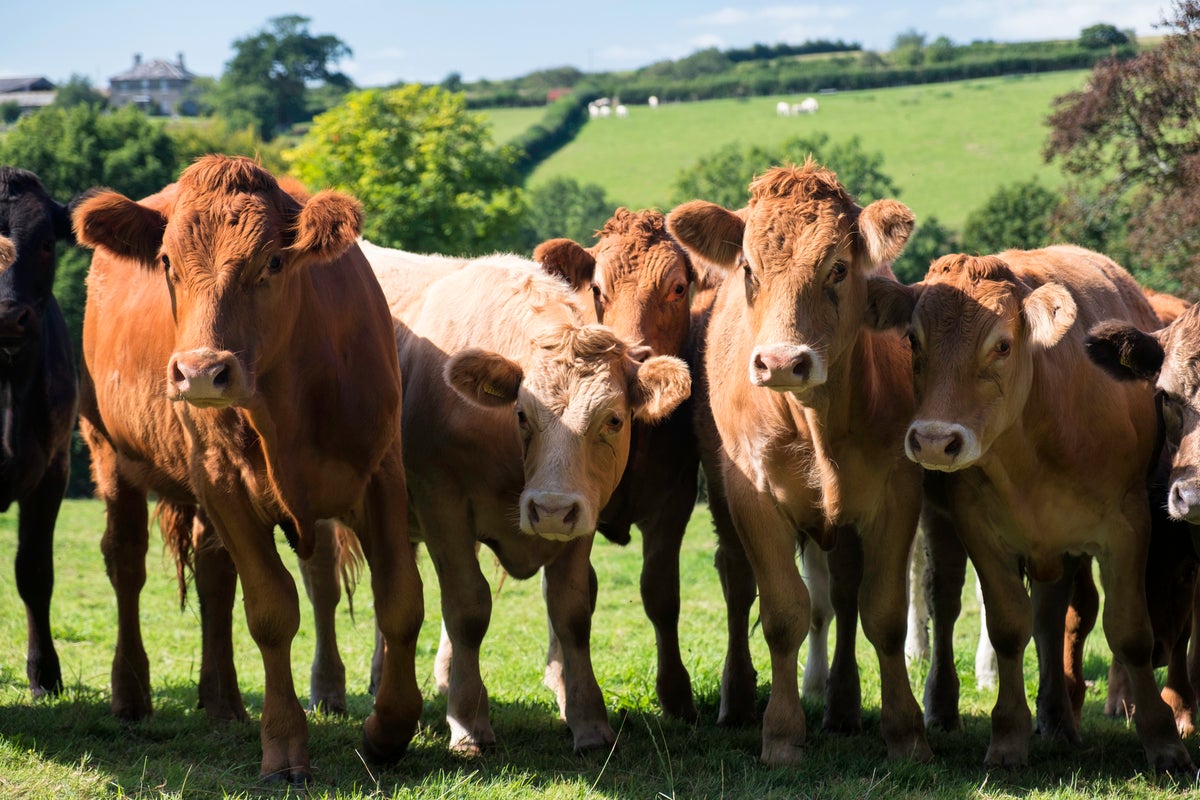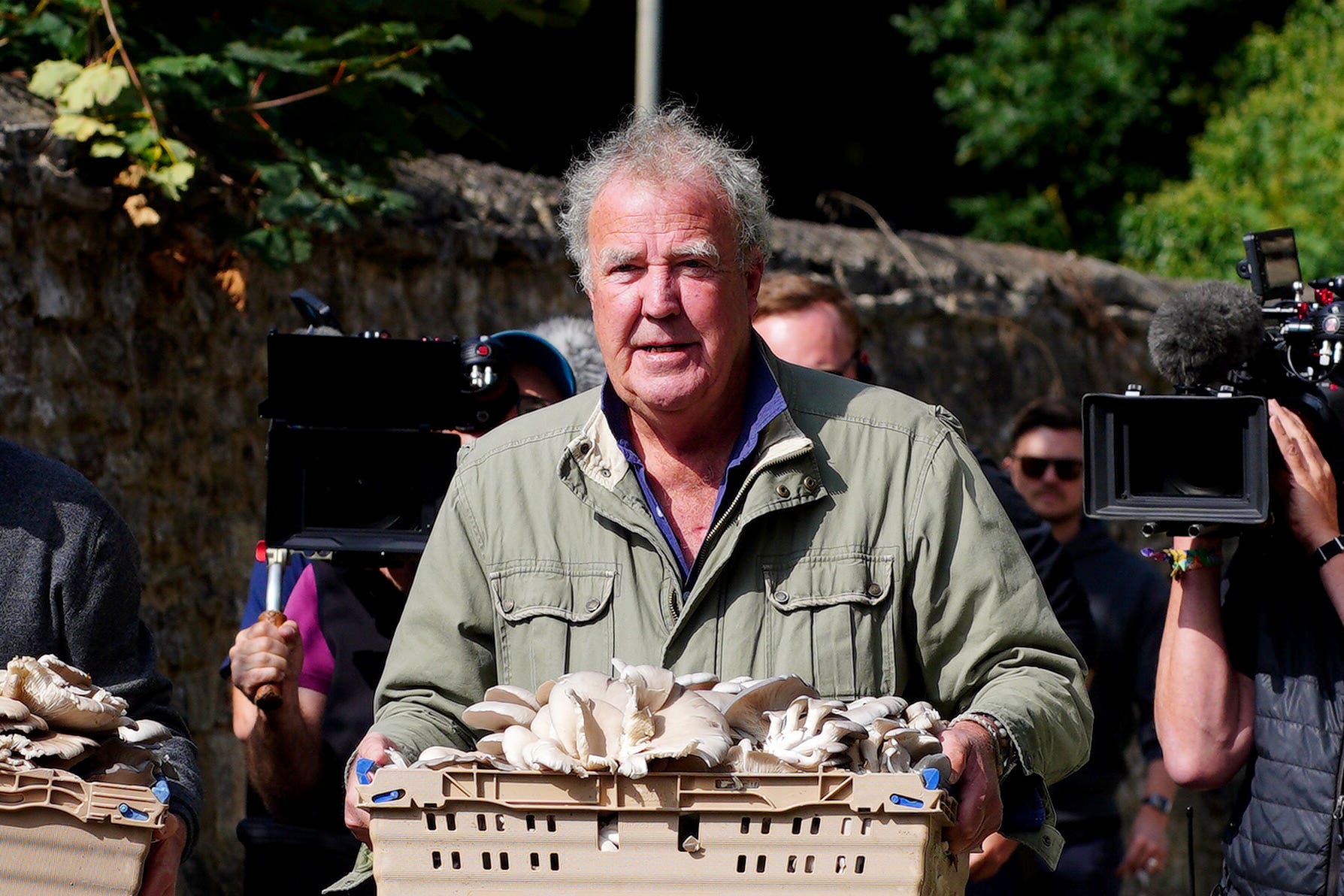
Bovine tuberculosis should be treated with similar urgency seen during the Covid-19 pandemic if it is to be eradicated by the target year of 2038, scientists say.
The disease, which devastates farm businesses by infecting cows, has been back in the spotlight in recent weeks after TV presenter Jeremy Clarkson reported cases on his farm in Oxfordshire.
Efforts to control Bovine TB cost taxpayers £1billion since 2010 and farmers a similar amount, while hundreds of thousands of largely healthy badgers and infected cows have been compulsorily slaughtered in attempts to stem its spread, prompting fierce criticism from wildlife campaigners.
Scientists published an updated report on England’s bovine TB strategy at the request of the government, which aims to eradicate the disease by 2038.
Bovine TB research ecologist Tom Langton said the current trajectory was closer to 2080 than 2038, with many proposals made caveated and with long built-in delays.
Wildlife supporters were disappointed that Labour did not call a halt to the cull after coming to power even though it had promised before the election to do so.
The scientists said more urgency, money and political consensus were necessary to meet the target.

Professor Sir Charles Godfray, from the University of Oxford, who worked on the report, said: “We think achieving the bovine TB-free status by that time is possible, but it is going to be tough.
“We need a step change… in the urgency in which we treat this disease, and the resources devoted to eradication.”
Sir Charles said that while there was no close parallel between bovine TB and Covid-19, he cited the “real concentration” and expedited progress demonstrated during the pandemic.
“We want something equivalent of that for this disease, which costs the taxpayer £100m a year in England, costs the farming community about the same, and has real effects on farmers’ livelihoods and mental health, as well as being a real issue for the wildlife reservoir,” he said.
But Mr Langton slated the report, saying: “This is a rather general, if not waffly report, with lots of ideas stuck together but no hard content or coherence. It has scientific flaws, omissions and ambiguity.”
Badger culling has long been a part of the government’s response to bovine TB despite strong opposition from animal welfare and wildlife groups, including Queen guitarist Sir Brian May.
Trials led by Sir Brian showed scrupulous hygiene on farms prevented cows being infected. He said they showed this meant badger culling was unnecessary.
Earlier this year, ministers announced a commitment to end the practice of culling before the next election. It was part of a policy decision by Boris Johnson in 2020.
The scientists said it was possible to meet the 2038 target without culling badgers but considerable effort and resources will need to go towards other non-lethal measures, such as badger vaccinations and biosecurity measures.
Mr Langton said: “As usual, cattle vaccination is years away and it seems will always be. On this the report is wholly unconvincing.”
The scientists also called for more speed in processing an application for a licence to use a newly developed vaccination on cattle.
Professor James Wood, of the Department of Veterinary Medicine at the University of Cambridge, who also worked on the report, said: “This is a very exciting advance but we feel a greater urgency could be applied here.”
More widely, the scientists said the government should provide a “reasonable amount” of funding to tackle the disease, including investment into IT infrastructure, vaccinations and tests.
Sir Charles said that while the team was “fully aware of the great pressures on public finances” at the moment, they believed investment in bovine TB control would save money in the future.

The scientists said the government should appoint a senior official to lead the eradication strategy in a more visible and public-facing role, who can “field questions” and “knock heads together”.
“We think it’s absolutely essential that the disease control is co-owned by all the stakeholders involved – so government, industry, but also the wildlife NGOs – the people who care so much about the wildlife reservoir,” Sir Charles said.
The scientists called for a more “evidence-led approach” to help reach a consensus.
Farming minister Daniel Zeichner said the government was determined to eradicate bovine TB.
“Following a record year for badger vaccination in 2024, a new Badger Vaccinator Field Force will be deployed next year. We are also developing a cattle vaccine and, along with the Scottish and Welsh governments, have invested over £40m into vaccine related research,” he said.
“Early next year, we plan to publish a comprehensive new strategy that will set out how we will eradicate this disease by 2038.”
‘MND robbed me of my voice – now I can speak thanks to AI and an old videotape’
Why scientists believe the simple life is more likely to be a happier life
Number of people living with cancer to hit record of 3.4 million this year
MRI scan could fast-track patients for bladder cancer treatment, study finds
Age ‘waves’ could change how you live. Here’s what scientists say
Woman who beat breast cancer twice inadvertently furthers long Covid research







